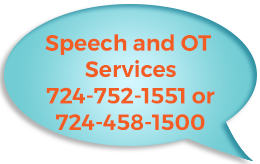Speech Therapy for Adults
Speech Therapy for Adults:
Adults are seen by an Speech-Language Pathologist (SLP) when they have suffered some kind of damage to the brain, typically from a traumatic brain injury (TBI), stroke, dementia, Alzheimer’s disease, or other neurological process. An SLP may also help with communication or swallowing after treatment for head and neck cancers. SLPs assess and address skills in adults who have disorders of the following:
- Receptive Language – Difficulties in understanding the words we hear or read
- Expressive Language – Difficulty communicating due to lack of vocabulary, word construction or order skills – may include use of Augmentative and Alternative Communication (AAC) methods
- Motor Speech Skills – Difficulty with adequate strength, range or coordination of movement of the mouth (such as with Apraxia or Dysarthria)
- Swallowing – Difficulty with ability to chew or swallow food or liquid which may include entry into the airway (often observed as choking, coughing while eating or drinking or pneumonias)
- Voice and Resonance – Difficulty using voice pitch, loudness, or quality when speaking
- Memory, Cognitive Reasoning and Executive Function – Difficulty remembering and retaining information, reasoning and calculating in daily activities such as understanding and following medication schedules, safety awareness, orientation, or handling finances
- Fluency / Stuttering – Difficulty speaking without excessive prolongations, hesitations or repetitions of sounds or words



